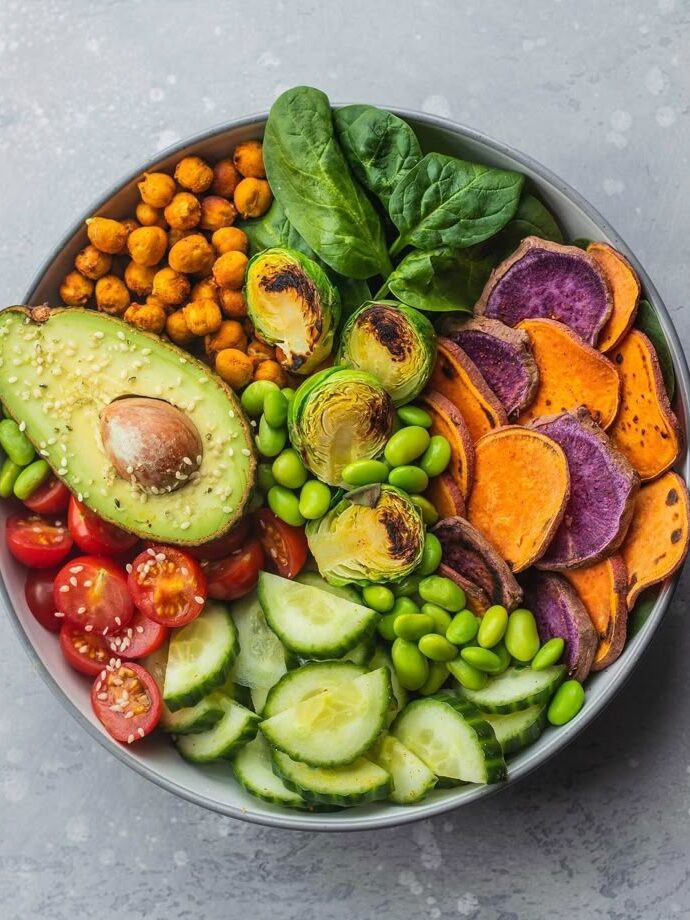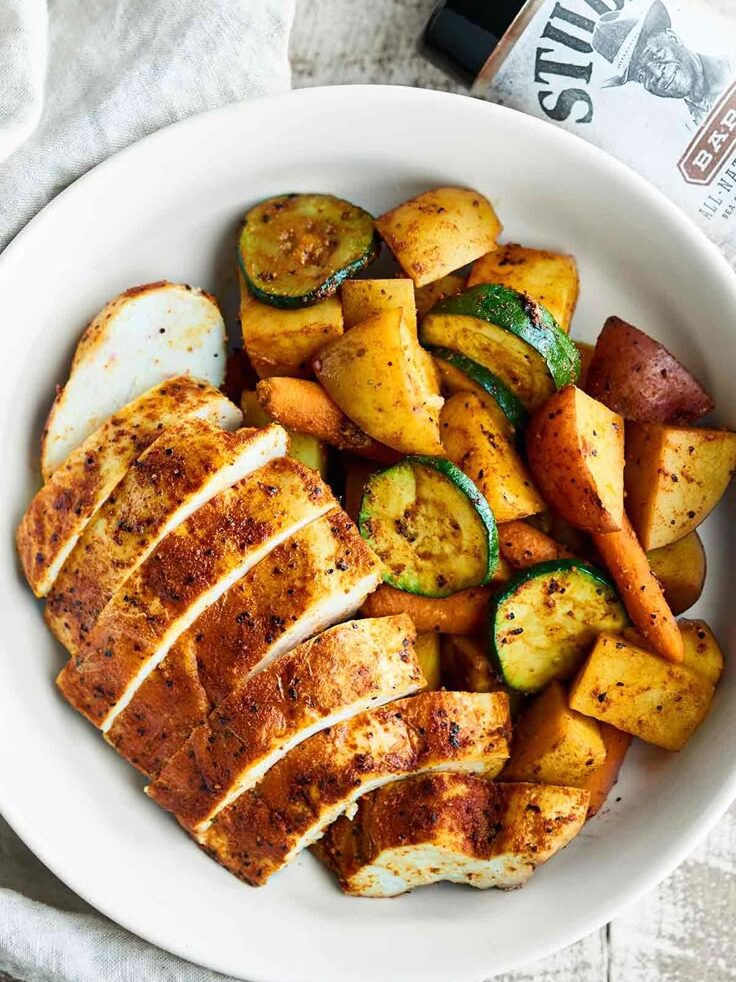A strong immune system is essential for maintaining your health and fighting off illnesses. Eating the right foods can significantly support your immune function and help keep you feeling your best. Understanding how certain nutrients contribute to immune health can guide you in making better choices for your diet.
In this article, you will learn about key nutrients that play vital roles in your immune system, along with specific foods that can help boost your immunity. From antioxidants found in fruits and vegetables to the beneficial effects of fatty fish and lean meats, there are many options to explore. Taking small steps to include these immune-boosting foods in your daily meals can lead to meaningful improvements in your overall health.
By focusing on nutrition, you can enhance your body’s natural defenses. It’s not just about what you eat; your overall lifestyle also influences your immune health. Let’s discover effective ways to nourish your body and foster a resilient immune system.
Key Takeaways
- The immune system requires various nutrients to function properly.
- Certain foods can help improve immune response and health.
- A balanced lifestyle also supports overall immune function.
The Immune System Explained
The immune system is a complex network that protects your body from harmful invaders. Understanding its components can help you appreciate how nutrition plays a vital role in supporting its functions.
Cells and Organs Involved in Immunity
Your immune system is made up of various cells and organs working together. Key players include:
- White Blood Cells: These cells fight infections. They include lymphocytes like T-cells and B-cells.
- T-Cells: They help destroy infected cells and coordinate the immune response.
- B-Cells: They produce antibodies that target specific pathogens.
Important organs include:
- Bone Marrow: This is where blood cells, including immune cells, are produced.
- Thymus: This organ matures T-cells, crucial for fighting infections.
- Spleen: The spleen filters blood and helps in fighting bacteria and viruses.
These cells and organs together form a protective barrier against infections.
How the Immune System Combats Pathogens
When viruses and bacteria invade your body, the immune system kicks into action. Here’s how it works:
- Recognition: Immune cells identify pathogens through markers on their surfaces.
- Response Activation: T-cells activate other immune cells and release chemicals to signal an attack.
- Antibody Production: B-cells produce antibodies that latch onto pathogens, marking them for destruction.
Phagocytes then engulf and destroy these invaders. This coordinated effort is essential for maintaining your health and preventing illness. Proper nutrition can help enhance these processes, providing your body with the necessary tools to fight infections effectively.
Key Nutrients for Immune Support
Your immune system relies on various nutrients to function properly. Certain vitamins, minerals, proteins, and fatty acids play crucial roles in boosting your immune response. Here are the vital nutrients to include in your diet to support immunity.
Vitamins Vital to Immune Health
Vitamins are essential for maintaining a strong immune system. Vitamin C is known for its ability to enhance the activity of immune cells and protect against oxidative stress. Foods rich in vitamin C include citrus fruits, strawberries, and bell peppers.
Vitamin E acts as an antioxidant, helping to protect your body’s cells from damage. You can find it in nuts, seeds, and green leafy vegetables.
Vitamin A supports the health of skin and mucosal barriers, which are your body’s first line of defense. Sources of vitamin A include carrots, sweet potatoes, and spinach.
Vitamin D is crucial for activating immune defenses. You get vitamin D from sun exposure and foods like fatty fish and fortified dairy products.
Minerals That Aid Immune Response
Minerals are another key aspect of immune support. Zinc is vital for the development of immune cells and can be found in meat, shellfish, and legumes.
Iron is necessary for immune function and is found in foods like beans, lentils, and red meat.
Selenium plays a role in reducing inflammation and can be found in Brazil nuts, seafood, and whole grains.
Magnesium is involved in immune response regulation and is abundant in nuts, seeds, and whole grains.
Additionally, folate assists in the production of white blood cells. Green leafy vegetables, beans, and citrus fruits are excellent sources of folate.
Proteins and Fatty Acids for Defense
Omega-3 fatty acids are known for their anti-inflammatory properties and help to regulate immune responses. You can find omega-3s in fatty fish, flaxseeds, and walnuts.
Eating a balanced diet that includes these proteins and fatty acids will provide the necessary building blocks for a robust immune system. Aim for a variety of foods to cover all these key nutrients for the best support.
Immunity-Boosting Foods to Include in Your Diet
To support your immune system, certain foods provide essential vitamins, minerals, and antioxidants. Focusing on fruits, vegetables, and proteins can help strengthen your body’s defenses against illness.
Fruits Rich in Vitamins and Antioxidants
Citrus fruits like oranges, lemons, and grapefruits are high in vitamin C. This vitamin is essential for the immune system, helping to protect against infections. Berries, such as blueberries and strawberries, are rich in antioxidants. They combat free radicals, which can damage cells and weaken immunity.
Garlic and ginger also play important roles. Garlic contains compounds that boost immune function, while ginger has anti-inflammatory properties. Consider adding turmeric, another great option, known for its antioxidant and anti-inflammatory benefits.
Vegetables for Immune Health
Load your plate with leafy greens like spinach and kale. These are packed with vitamins A, C, and K, which support immune function. Broccoli is also a powerful choice, as it contains vitamins, minerals, and antioxidants that may enhance the immune response.
Don’t forget about red bell peppers. They supply more vitamin C than citrus fruits. Sweet potatoes are great too; they are high in beta-carotene, which the body converts to vitamin A, helping to maintain a healthy immune system.
Protein Sources to Build Immunity
Including protein in your diet is crucial for a strong immune system. Chicken and fish like salmon and mackerel provide protein, along with omega-3 fatty acids. These nutrients help reduce inflammation and support immune health.
Eggs are another solid option, offering protein and vitamins that promote immunity. Yogurt and kefir are beneficial as well, as they contain probiotics that support gut health and enhance your immune response. Adding nuts like almonds and seeds such as sunflower seeds can round out your immune-boosting diet with healthy fats and vitamins.


Lifestyle Factors Affecting Immune Health
Your lifestyle plays a crucial role in supporting your immune system. Factors like sleep, exercise, stress, and alcohol consumption can significantly impact how well your immune system functions. Here’s what you need to know.
Importance of Sleep and Exercise
Getting enough sleep is essential for a healthy immune system. During sleep, your body repairs itself and produces proteins called cytokines. These proteins support immune response, especially during infections. Aim for 7-9 hours of quality sleep each night.
Exercise also boosts immunity. Regular physical activity promotes good circulation, helping immune cells move throughout your body. Aim for at least 150 minutes of moderate exercise each week. Activities like walking, running, or cycling strengthen your immune function and support a healthy gut microbiome, which is vital for digestion and immunity.
Effects of Stress and Alcohol
Stress can weaken your immune response. When you experience stress, your body releases hormones like cortisol, which can suppress immune function. It’s important to manage stress through techniques like mindfulness, meditation, or even simple breathing exercises.
Alcohol consumption can also negatively affect your immune health. Drinking in moderation, if at all, is important. Excessive alcohol can disrupt gut bacteria and impair your immune system’s ability to fight off infections. Aim to limit alcohol to no more than one drink per day for women and two for men.
By prioritizing sleep and exercise while managing stress and alcohol intake, you can enhance your immune system support through lifestyle choices.
Supporting Immunity with Supplements and Probiotics
To keep your immune system strong, consider using supplements and probiotics. These can play a significant role in supporting your health.
Important Nutrients
Key nutrients for immunity include:
- Vitamin C: Helps protect cells and supports the immune response.
- Vitamin D: Important for immune function and overall health.
- Zinc: Essential for the development and function of immune cells.
You can find these nutrients in foods or supplements to ensure you’re getting enough.
The Role of Probiotics
Probiotics are beneficial bacteria that support the gut microbiome. A healthy gut can boost your immune system. You can get probiotics from foods like:
- Yogurt
- Sauerkraut
- Kefir
These foods add good bacteria to your digestive system.
When to Consider Supplements
If your diet lacks certain nutrients, supplements may help. For instance:
- Taking probiotic capsules could enhance gut health.
- Vitamin C and zinc supplements can help if you’re not getting enough from food.
Always consult a healthcare professional before starting any new supplements. They can help you determine what works best for you and your immune health.
Frequently Asked Questions
You may have questions about how to support your immune system through nutrition. This section answers common inquiries about foods, nutrients, and practices for a stronger immune response.
What are the top immune-boosting foods to include in my diet?
Incorporate foods like citrus fruits, spinach, garlic, and almonds. Citrus fruits are high in Vitamin C, which is known for its immune-supporting properties. Spinach provides vitamins and antioxidants, while garlic has compounds that may enhance the immune response.
How can I naturally enhance my immune system?
You can naturally boost your immunity by eating a balanced diet rich in fruits, vegetables, and whole grains. Regular exercise and sufficient sleep are also key factors in supporting immune health. Staying hydrated is essential for overall bodily functions, including immune response.
Can certain foods improve immune response quickly?
Some foods can help you feel better faster, especially when you’re sick. Chicken soup is known for its soothing properties and can help with hydration. Foods rich in Vitamin C, like oranges, can support your body in fighting off infections more effectively.
What nutrients are key for strengthening the immune system?
Important nutrients for immune health include Vitamins A, C, and E, as well as zinc and protein. Vitamin C is crucial for the growth and repair of tissues. Zinc plays a role in how your immune cells function, enhancing your body’s ability to fight off illness.
Are there any quick ways to boost immunity when feeling unwell?
When you’re not feeling well, focus on hydration and nutrient-dense foods. Warm teas with honey can soothe your throat and provide antioxidants. Broths and soups can also help keep your body hydrated while delivering essential nutrients.
What are effective daily practices to maintain a strong immune system?
Maintain a strong immune system through consistent habits. Aim for a diet rich in various nutrients and limit processed foods. Regular physical activity, quality sleep, and stress management are also essential for keeping your immune system functioning well.





